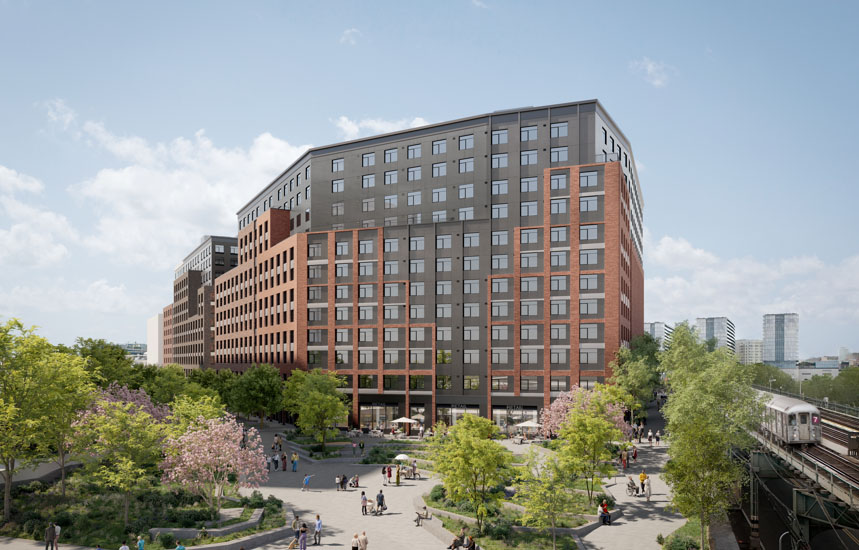News:
Owners Developers & Managers
Posted: April 4, 2008
Security guards, your first line of defense must be certified
Walk into any building today in New York, as well in any major city in the United States, and you will see the ever present security guard. He or she is there for very good reasons which are self evident in today's economic, political and threat climate.
Many buildings retain "contract" security guards that are supplied by New York State licensed guard companies who in turn assure that the security guards that they provide are licensed by the State of New York.
As well, many building owners and property managers elect to employ their own security guards, which are known as "proprietary" security guards. In addition many buildings call their "front line" staff: doormen and concierge. These job titles, and their associated job descriptions, serve a viable, necessary function. Yet, in all cases, the personnel in these roles are asked to be acutely aware of the surroundings and any unusual activity that may be a threat to the property or to the tenants, or residents, of the building.
Now, the doormen and concierge are being asked to function as "security guards" as well. There's nothing wrong with that. An extra set of eyes is a very valuable tool in combating the potential risks that may present themselves.
A potential problem arises when the "proprietary" guard, or the doorman or the concierge, acting in a "security guard" capacity, are not trained and certified.
Training for "security guards" was mandated in New York State by the Security Guard Act of 1992. The Act requires that all security guards complete three training courses that are conducted by certified instructors at approved training schools. New York State law mandates that the NYS Dept. of State, Division of Licensing NYS Department of State, Division of Licensing Services has oversight responsibility for the licensing and registration of all security guards in New York State.
As defined by the law, "A security guard is employed by an organization, company or agency to patrol, guard, monitor, preserve, protect, support and maintain the security and safety of personnel and property. Security guards deter, detect and report infractions of organizational rules, policies and procedures. Security guards help limit or prevent unauthorized activities, including but not limited to trespass, forcible entry or intrusion, vandalism, pilferage, theft, arson, abuse and/or assault."
We live in a world of liability and accountability. Having a "security guard," or any other building staff, which may include porters and handymen, perform security guard functions that are not properly trained, licensed and registered in New York State, could cost the building owner or property manager inordinately large sums of money in the long run and interfere with the management of your building.
Certification of a security officer is a process that must be done correctly to avert liability to your company. A security officer should first be screened to see if they meet the criteria that NYS Department of State requires. They should be over 18 years of age, they should have a high school diploma or GED and they should be able pass a written exam and a national background check.
Then there is a five page application to be filled out by the employee, along with four fingerprint cards and the state must be called to give their initial approval for this applicant. The applicant will then and only then be sent to undergo an eight-hour pre-assignment course. When the applicant passes the course exam, a certificate is issued and sent to the state with the required fees to obtain a security guard license.
This license is valid for two years. The security guard must then take a 16 hour on-the-job training course to complete his/her license requirement.
The officer must then attend an eight-hour annual refresher course and have it registered with the state each year to maintain his/her license.
After two years the license will expire and the officer must renew it by paying $25 to New York State for the renewal fee that will last for another two years. If the officer does not complete the NYS mandated prescribed courses, NYS will deny the renewal and the license will expire. The officer, "security guard" or any building staff person that was charged with the added responsibility of performing "security guard" work can no longer legally perform any "security" functions or work in the security industry.
After all personnel who are charged with the responsibility to perform "security" work are licensed, the property itself must be registered with the state and the registration must be reviewed with the property's insurance carrier to avoid greater liability.
The officer must then be registered to work at that specific property. Then and only then can a "security guard" be working for a proprietary property. Lastly, copies of all the paper work must kept on site for inspection by the Department of State. The property's security program should be monitored on a regular basis to ensure compliance in order to correct any problems that arise daily, weekly or monthly. Failure to keep the program up to date will result in large fines by the Department of State. Safeguards International, Inc., through its affiliated certified instructors and approved training school, offers all these services to your companies and properties.
Allan Schwartz is president and CEO of Safeguards International, Inc., Yonkers, N.Y.
MORE FROM Owners Developers & Managers
Related Cos. and Sterling Equities open housing lottery for Willets Point Commons
Queens, NY Queens Development Group (QDG) – a joint venture between Related Companies and Sterling Equities – in partnership with the New York City Department of Housing Preservation & Development

Quick Hits
Columns and Thought Leadership

Strategies for turning around COVID-distressed properties - by Carmelo Milio
Due to the ongoing pandemic, many landlords are faced with an increasing number of distressed properties. The dramatic increase in unemployment and reduction in income for so many has led to a mass exodus out of Manhattan, an increase in the number of empty rental units

The CRE content gap: Why owners and brokers need better digital narratives in 2026 - by Kimberly Zar Bloorian
As we head into 2026, one thing is clear: deals aren’t won by who has the best asset; they’re won by who presents it best. Yet many owners, operators, and brokers are entering the new year with outdated photos, inconsistent branding, and limited digital presence. This






.gif)


.jpg)
.gif)